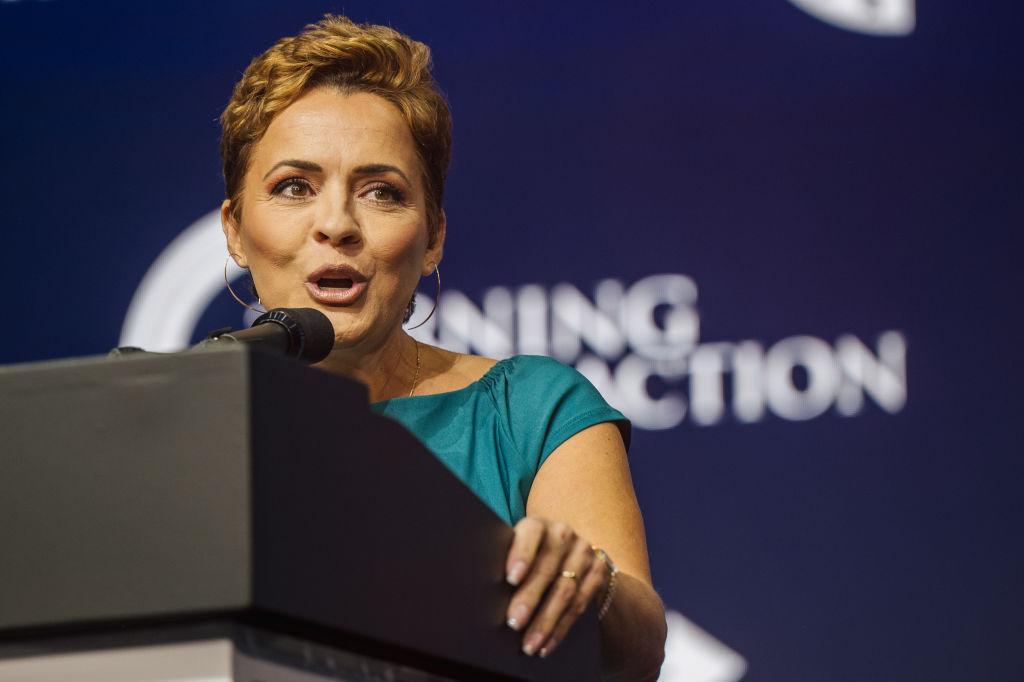Two candidates in Arizona are looking to the future after the troubled 2020 election, with a lawsuit looking to ban the use of machines to count votes in the Grand Canyon State.
Republican gubernatorial candidate Kari Lake filed the lawsuit seeking the ban, contending that the machines are too easily hacked making them vulnerable to criminals hoping to corrupt elections, according to the Arizona Daily Star.
Lake is joined in the lawsuit by Secretary of State hopeful Mark Finchem, also a Republican, who said that the machines and computer components based in other countries makes the machines unreliable and dangerous.
Andrew Parker, an attorney who filed the suit for the candidates, added that there is a fundamental problem with using these machines to count Arizona’s votes.
Parker noted that counting votes is the sole responsibility of the government, but by contracting with private companies to make the machines that do the counting, the government has handed over its function to outsiders.
Making the deals with these companies more insidious, the technology has been kept secret from the public.
“This lack of transparency by electronic voting machine companies has created a ‘black box’ system of voting which lacks credibility and integrity,” Parker wrote in the lawsuit.
The suit also insists that the testing process meant to assure that the machines are in working order don’t really do anything to assure accuracy or eliminate the “security problems inherent in the use of electronic voting machines.”
“All post-election audit procedures can be defeated by sophisticated manipulation of electronic voting machines,” he said in the suit.
The suit calls for the machines to be eliminated and the state to go back to counting votes by hand.
Attorney Parker specifically noted that the lawsuit was not an effort to overturn the 2020 election but is instead a way to assure that future elections are more trustworthy.
“It is only about the future — about upcoming elections that will employ voting machines designed and run by private companies, performing a crucial governmental function, that refuse to disclose their software and system components and subject them to neutral expert evaluation,” Parker said in the suit. “It raises the profound constitutional issue: Can government avoid its obligation of democratic transparency and accountability by delegating a critical government function to private companies?”
Parker’s suit added that the machines should be banned from use in Arizona “unless and until the electronic voting system is made open to the public and subjected to scientific analysis by objective experts to determine whether it is secure from manipulation or intrusion.”
The suit also demands new procedures for voting, including ballots printed on special paper that can defeat counterfeiting and adding a unique identification number to ballots that is linked to specific voters, so they can be sure their vote was counted.
For her part, in an interview with MyPillow inventor Mike Lindell, Lake said that she hoped to be in a position of making sure future elections were safe and secure.
“We know how tragic it was that this election (was) corrupted the way it was here in Arizona,” she told Lindell, according to Newsweek. “And we don’t want it to happen again.”
Lake, Finchem and Parker’s suit comes amid a number of investigations and a growing movement across the country to take steps to make sure elections are protected from criminal activity and to be sure hackers are unable to upset the will of the American people.
This article appeared originally on The Western Journal.

























 Continue with Google
Continue with Google